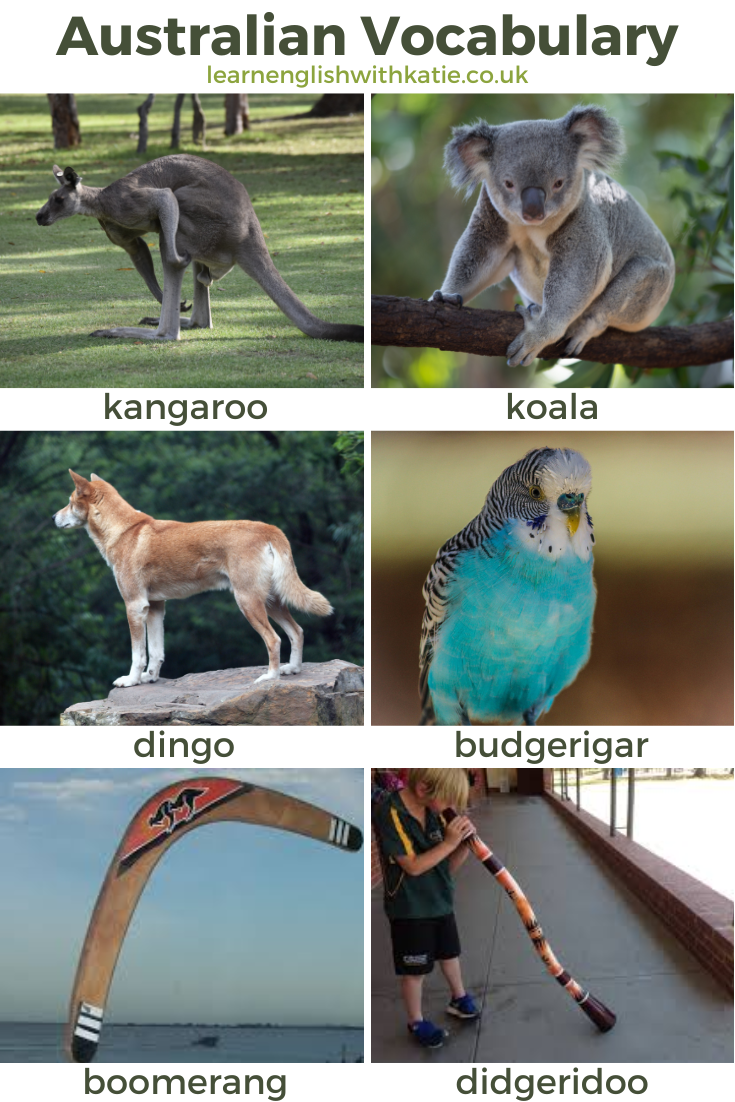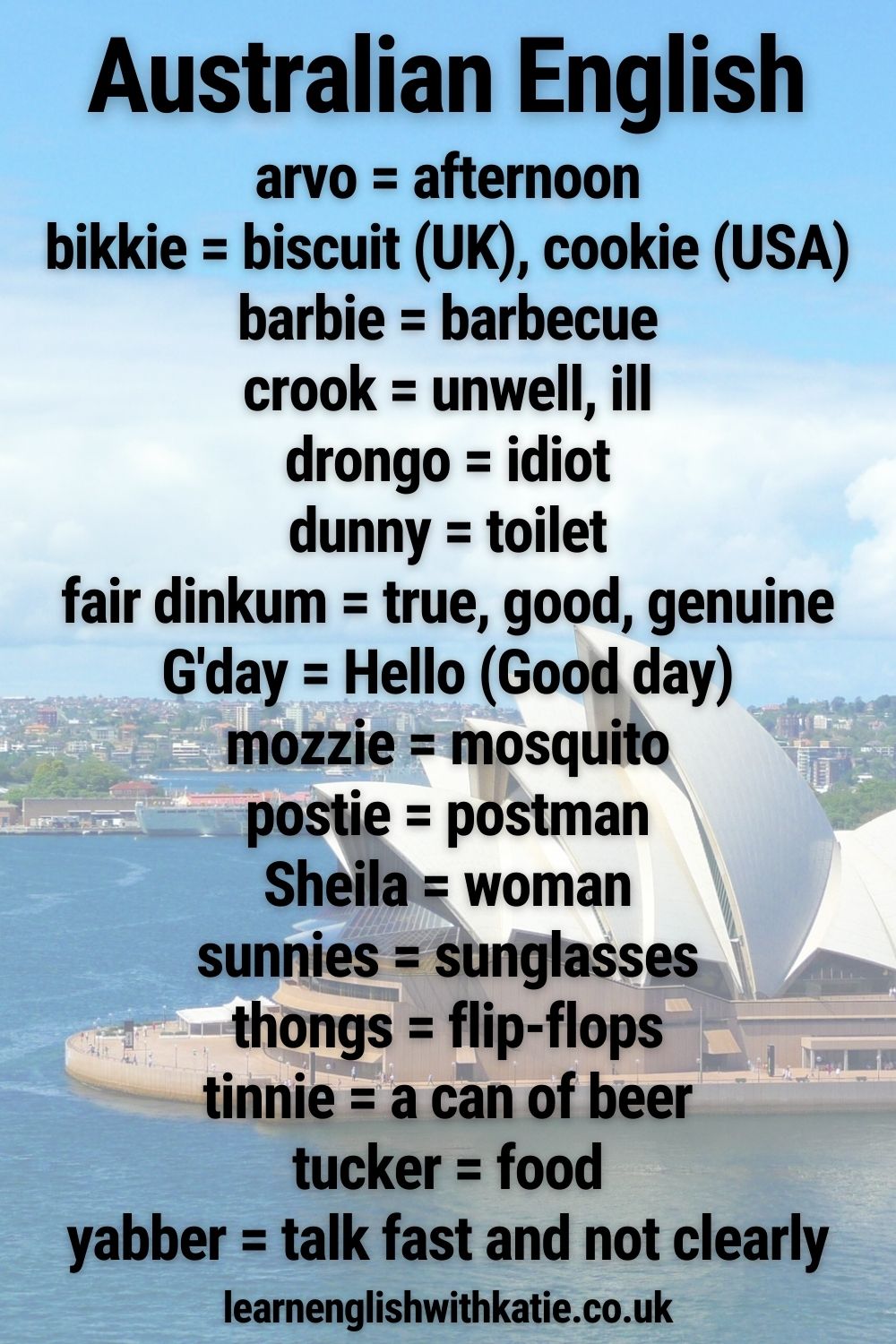|
I've watched a few Australian TV programmes recently and have picked up some differences between Aussie and British English. If you want to practise your listening skills or familiarise yourself with the Australian accent, I recommend "A Place to Call Home", "The Doctor Blake Mysteries", "800 Words" or "The Heart Guy" (also called "Doctor Doctor". Australian English uses mostly the same vocabulary as British English. They use some American words as well. The words I'm going to share with you today are particularly Australian. Here are a few of my favourite Aussie words: arvo = afternoon bikkie = biscuit (UK), cookie (USA) barbie = barbecue crook = unwell, ill drongo = idiot dunny = toilet fair dinkum = true, good, genuine G'day = Hello (Good day) mozzie = mosquito postie = postman / postwoman Sheila = woman sunnies = sunglasses thongs = flip-flops tinnie = a can of beer, or a small aluminium boat tucker = food yabber = talk fast and not clearly I have heard "bikkie", "mozzie" and "postie" used in the UK as well. You may know that Australia has some animals that can't be found anywhere else. These words come from Aboriginal languages, from the people who were there before white people arrived. For example: koala = a small cute bear found in Australia dingo = an Australian wild or semi-wild dog kangaroo = a large Australian animal that moves by jumping on its back legs wallaby = an animal similar to a small kangaroo budgerigar = a small brightly coloured bird, often kept as a pet. Also called "budgie" for short. Another Aboriginal word that has become part of English is: boomerang = a curved piece of wood that you can throw and it comes back to you There are some words which are thought to be from Aboriginal languages but are not. For example: didgeridoo = a musical instrument made out of a long wooden tube which you blow into. (This may in fact be from Irish or Scottish Gaelic.) If you would like to know how to improve your vocabulary and how to remember new words more easily, this e-book is for you:
1 Comment
|
About the blogFollow the blog for mini lessons and tips on how to improve your English. Categories
All
Archives
July 2024
|


 RSS Feed
RSS Feed
